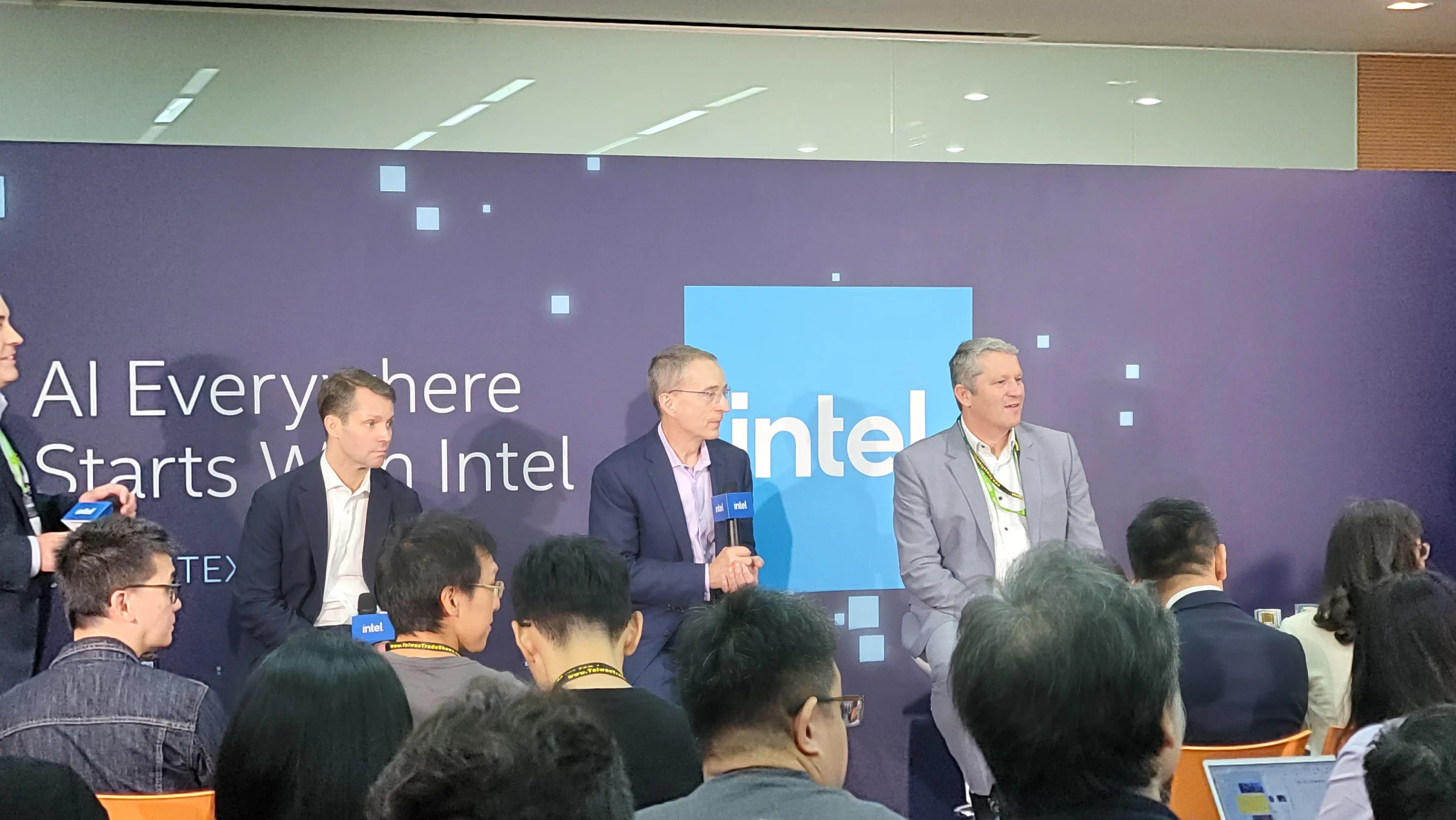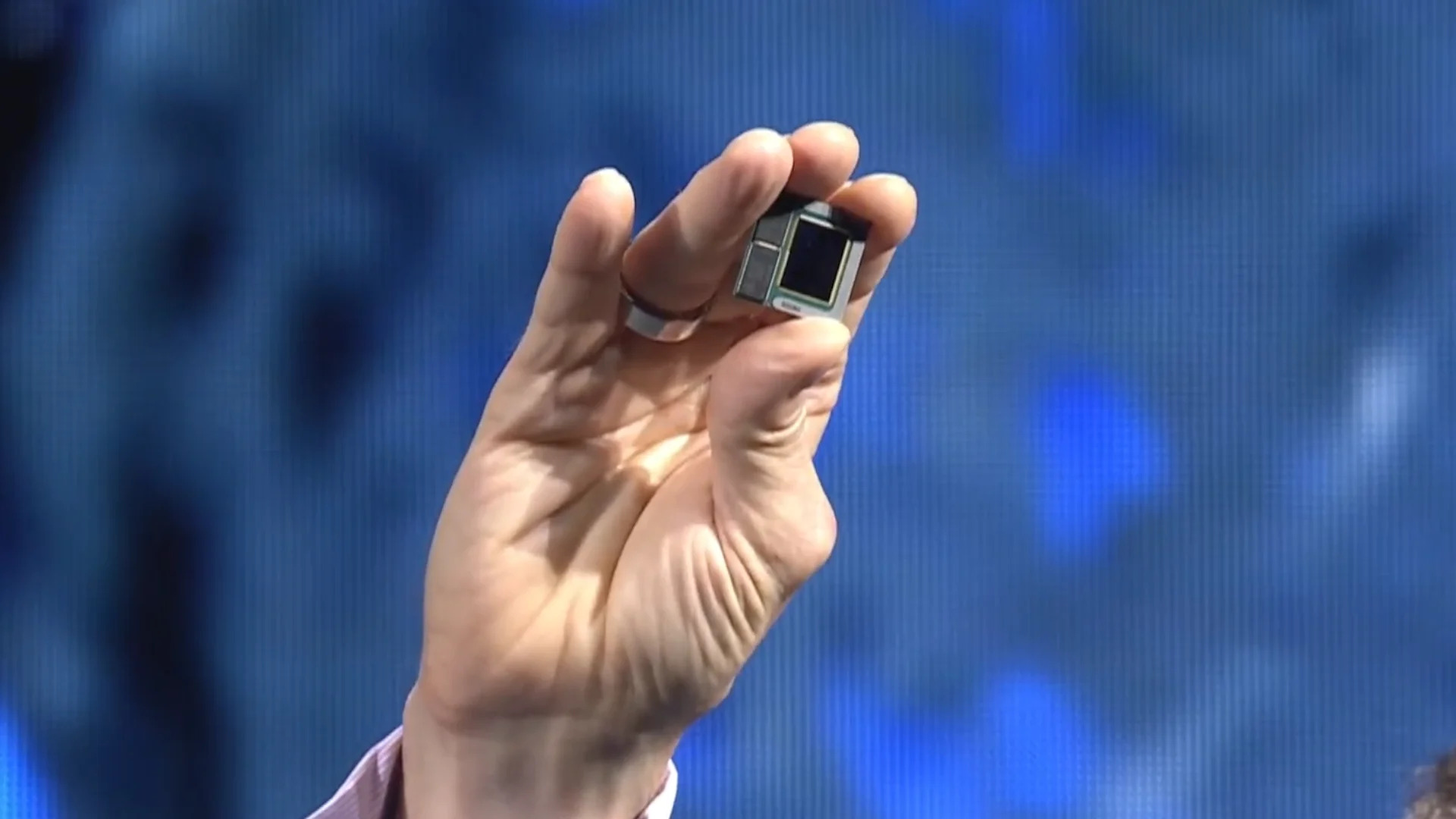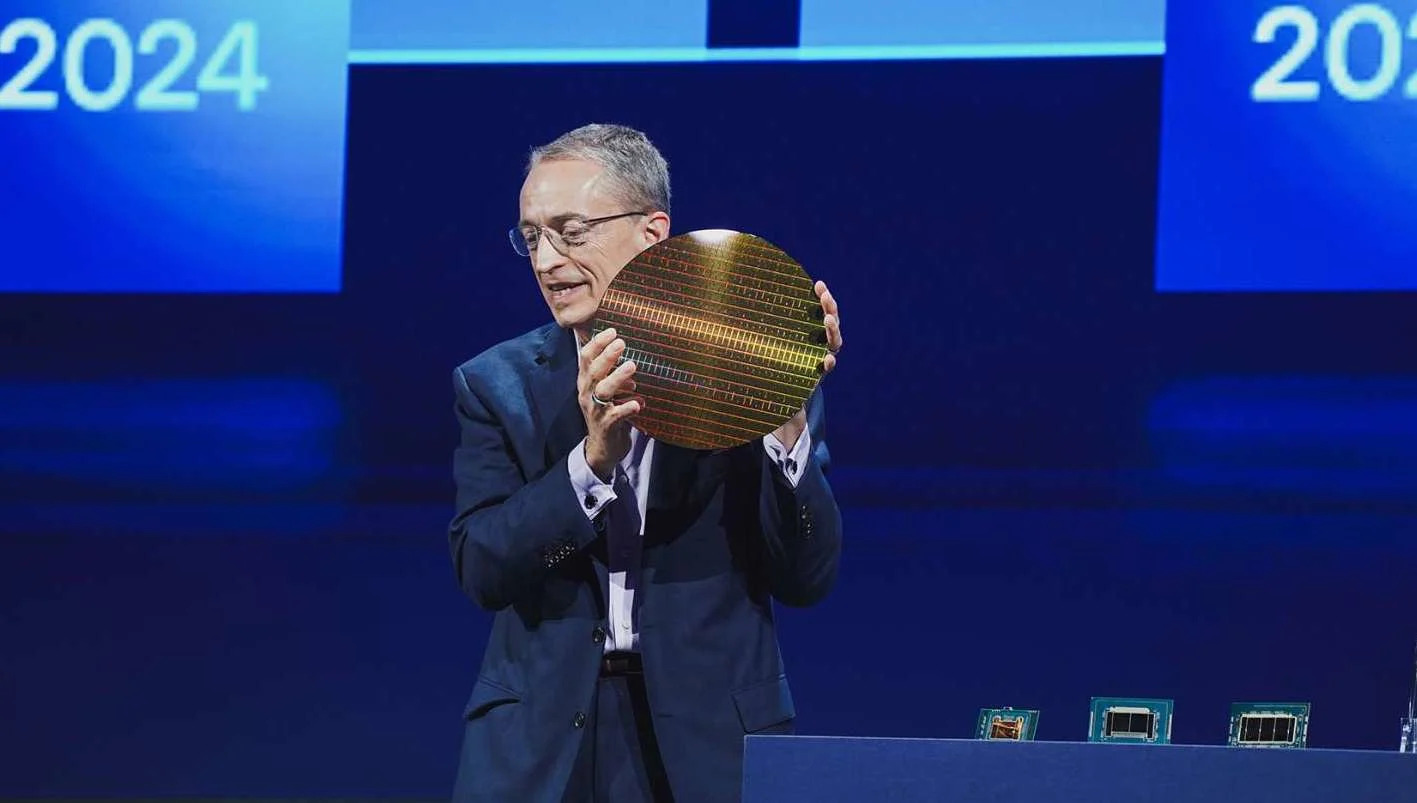Intel CEO Pat Gelsinger told Tom's Hardware during a question and answer session at Computex 2024 that China must make its own processors if U.S. sanctions on the latest American-made AI chips become too restrictive.
Gelsinger advocated for strong restrictions on manufacturing technology, pointing to the restrictions on EUV lithography technology as a key cutoff point that will restrict the abilities of Chinese chipmakers while imposing balanced limits on products — thus allowing American companies like Intel to remain competitive in the Chinese market.
"The restrictions on U.S. products sold into China restrict the revenue that chip makers can extract from the country — which can hurt, but it's also accelerating the China ecosystem, not only in making chips, but also in making products specifically around AI. Do you think that the U.S. restrictions are too stringent, or could maybe be relaxed a little bit? Also, do you think that that will eventually foster competitors that could compete with you outside of China?" I asked Gelsinger.
"The export restrictions, to me, they're sort of a magic line, and so I've commented that if that line is too restrictive, then China has to build its own chips. And, there, to me, is a very careful balance of what's appropriate," Gelsinger responded.
AfriPrime App link: FREE to download...
https://www.amazon.com/Africircle-AfriPrime/dp/B0D2M3F2JT
"Now, I think if they're too restricted, then China must pragmatically rely on its own products for that, which hurts the market for export," Gelsinger said. "And as I was saying, good policy is controlling carefully the technologies you export, particularly manufacturing technologies, and maximize product exports and make sure that you're aligned with the global ecosystem of partners. I believe that's the framework of a good policy structure in this regard. Obviously, we're continuing to pursue exporting all of our products to China as well, and we're continuing to make products like Gaudi available in China."
"Because of the technology export restrictions on things like EUV, we see that the attractiveness of global products and Intel products will continue to be high because there will be sort of a floor that it'll be difficult for local semiconductor manufacturers in China to move through. As a result, as we continue to go below two nanometers and beyond, there'll be an attractiveness for Intel products in the China market. And I believe, as a result, we'll continue to have a good market opportunity for us," Gelsinger concluded.
Restrictions on China's chipmaking capabilities could give American companies an inherent advantage with higher-performance and lower-power processor options than products made by China-based chipmakers, but U.S. sanctions that limit the performance of American products sold into China blunt that advantage. Despite those challenges, Gelsinger still sees opportunities in the China market.
Gelsinger's reference to its AI products still being available in China refers to the company's special line of Gaudi 2 AI chips that have restricted performance metrics that specifically fall under the U.S. sanctions guidelines. Intel announced the launch of its newer Gaudi 3 processors here at Computex, with those products coming to market in Q3 of this year, and all signs point to the company offering specialized China versions of the Gaudi 3 chips as well.
AfriPrime App link: FREE to download...
https://www.amazon.com/Africircle-AfriPrime/dp/B0D2M3F2JT
Intel CEO on Nvidia's Jensen Huang: 'Moore's law is alive and well' and here's the AI chip to prove it
Intel Lunar Lake CPU held by CEO Patrick P. Gelsinger.
Late last night, and mid-way through the day on the other side of the world in Taipei, Taiwan, CEO Pat Gelsinger took to the stage to make Intel's presence known during Computex 2024.
Gelsinger's keynote showcased the next generation of Intel's products, including client and data center computing chips, with the company's upcoming Lunar Lake processors claiming much of the spotlight.
However, this wasn't only a platform for Intel to reveal its latest accomplishments to the tech world, Gelsinger also took the opportunity to add to a years-long back and forth with another industry figurehead.
AfriPrime App link: FREE to download...
https://www.amazon.com/Africircle-AfriPrime/dp/B0D2M3F2JT
Moore's Law: Alive and well?
Intel's keynote opened with an AI recreation of co-founder Gordon Moore repeating one of his more well-known statements: "Whatever has been done can be outdone." It's a battle-cry for Intel in its quest for microchip mastery, but it also lends well to another of its co-founder's observations, commonly known as Moore's Law.
Moore's Law predicts that the number of transistors in an integrated circuit doubles about every two years, and it's been a prediction that has driven the semiconductor industry's targets for decades. However, that kind of progress isn't always sustainable, and experts have indicated that the pace has slowed if not stopped altogether in recent years. This has led some to believe that Moore's Law is dead — with Nvidia CEO Jensen Huang being a vocal proponent of that notion.
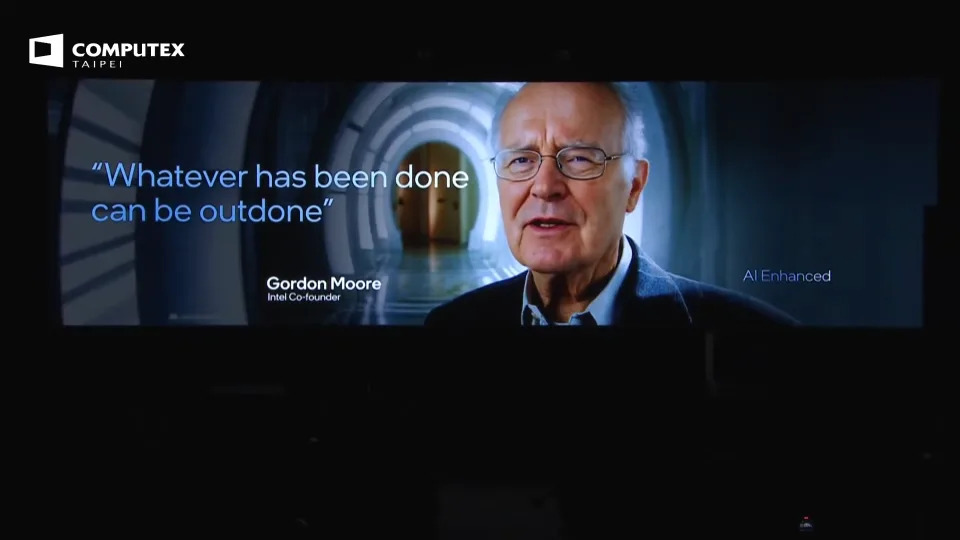
Huang's thoughts on Moore's Law are antithetical to current Intel CEO Pat Gelsinger, and the two have publicly exchanged their opinions over the last few years. However, Intel's Computex Keynote wasted no time in reasserting the accuracy of its co-founder's predictions.
Pointing back to 1981's Intel 80286 reveal, a 16-bit microprocessor housing 100K transistors, Gelsinger then highlighted how modern chips seek to feature a billion transistors, with that number estimated to reach a trillion by the end of the decade.
"Unlike what Jensen might have you believe, Moore's Law is alive and well" stated Gelsinger — and it helps that he brought the chip that aids his argument on stage with him.
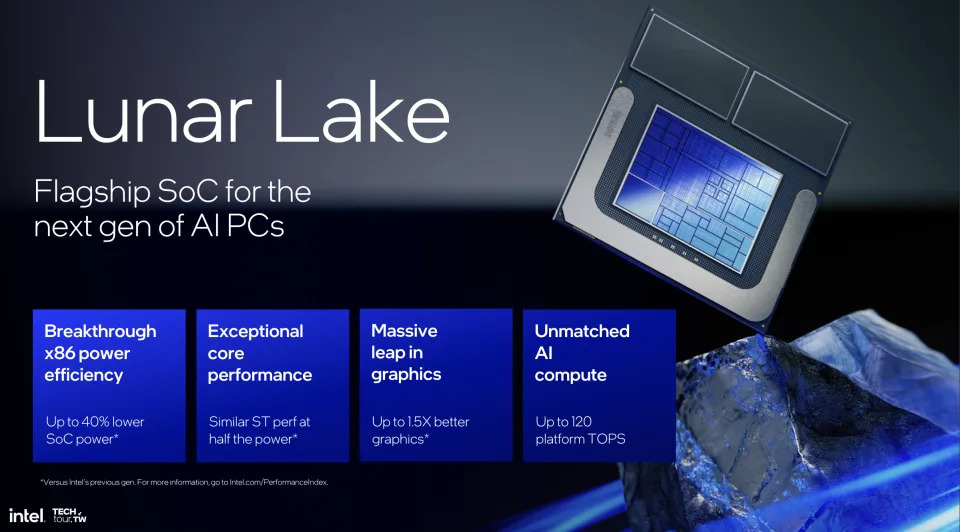
Lunar Lake: Intel's next-gen Core Ultra chips
After extolling the success of Intel's current Meteor Lake chipsets, something Microsoft CEO Satya Nadella would also do via pre-recorded video, Gelsinger got straight to the point of unveiling Intel's new flagship Lunar Lake, Core Ultra chips fabricated in collaboration with TSMC.
Gelsinger praises Lunar Lake for both its "Revolutionary design," and "its new IP blocks for CPU, GPU, and NPU." Expectations are high for Intel's next-gen AI PC processor, with Gelsinger stating that "It'll power the largest number of next-gen AI PCs in the industry" stating that Intel already has "Over 80 designs with 20 OEMs" that will begin shipping in volume from Q3, 2024.
Intel's next-gen SoC offers up to 40 percent lower SoC power, up to 50 percent better graphical performance over Meteor Lake, and up to 120 TOPS of AI compute spread across NPU, GPU, and CPU. Lunar Lake offers up to 48 TOPS of compute through its upgraded NPU alone, overtaking the current Copilot+ PC favorite chipset, Qualcomm's Snapdragon X Elite and falling only marginally short of AMD's recently announced Ryzen AI 300 Series.
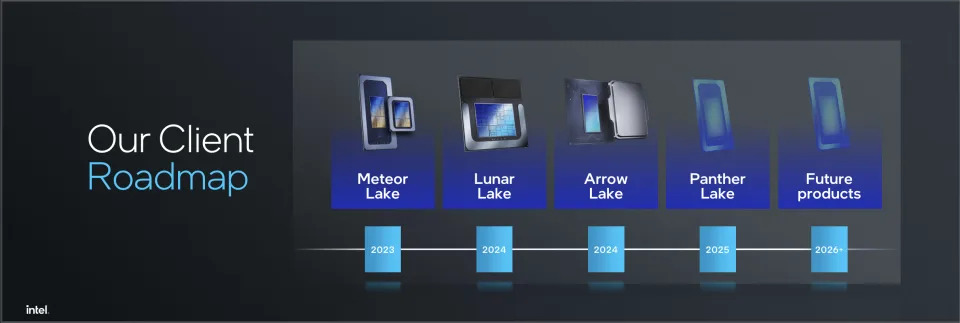
Intel chipsets: Looking ahead
Swinging back to the comments of Intel's co-founder earlier in the keynote, with the reveal of the new Lunar Lake chips now done, the company is setting out to outdo it.
Intel is the company that's looking to ship its second generation of AI PC chips before most have the chance to get their first out of the gates — and they're far from done, revealing their excitement to reveal its Arrow Lake processors, which will bring the AI PC category to desktops for the first time, later in the year.
Intel's plans for 2025? In Gelsinger's own words, "It just gets better with Panther Lake." Panther Lake is the company's next processor project and the third generation of its Core Ultra chiplet-based redesign, produced with its 18A process technologies.
"18a brings process leadership back to Intel, where it belongs" claims Gelsinger, suggesting that the company will be able to retake the lead from TSMC in the production of semiconductor chips.
Gelsinger's Panther Lake claims are bold and exciting, but we'll have to wait until next year's Computex event to get the full scoop.
AfriPrime App link: FREE to download...
https://www.amazon.com/Africircle-AfriPrime/dp/B0D2M3F2JT
Intel says it's happy to make the very Arm chips that threaten its x86 hegemony
"If Arm emerges, I want to be the foundry." So says Intel CEO Pat Gelsinger when asked at his post-keynote Q&A at the Computex show whether Arm chips are taking over and eating into Intel's market share of x86 chips for PCs.
Actually, Gelsinger gave two answers. First, he argued that Intel's x86 product line up is super strong.
"This is not the first Windows on Arm announcement, right? And the x86 market share has remained very hot, you need to have a reason to change. So, if you believe what I showed on stage today, literally the best CPU, the best graphics, the best NPU and very compelling battery life—why would you change," Gelsinger said.
But he also hedged his and Intel's bets. "That said, if Arm emerges, I want to be the foundry," he explained. "We don't say that cavalierly. We mean it. The partnership that Intel has forged with Arm is dramatically more powerful and beneficial for both companies than I could have even imagined when I took this job. We're seeing a lot of momentum for Arm as a foundry partner for Intel, as well."
Exactly what should we make of all this? For starters, there is a compelling reason to change to Arm, and that's battery life. As we reported yesterday, Dell says the shift to the Arm-powered Qualcomm Snapdragon X Elite chip lifts the battery life of its XPS 13 laptop with an Intel Meteor Lake chip from 18 hours to 27 hours. That is the very definition of compelling.
Of course, Intel says its upcoming Lunar Lake mobile CPU improves battery life. But it's not out yet and at best will be months behind the X Elite, which will be available to buy in laptops within a few weeks.
Moreover, it's notable that Gelsinger claims Intel has the best CPU, GPU and NPU when talking about Lunar Lake and its Panther Lake follow-up, but wasn't willing to claim it has the best battery life. For Lunar Lake to match what Dell is claiming for the X Elite Arm chip in terms of battery life would mean very likely by far the biggest leap in battery life ever from one generation of Intel laptop processor to the next.
AfriPrime App link: FREE to download...
https://www.amazon.com/Africircle-AfriPrime/dp/B0D2M3F2JT
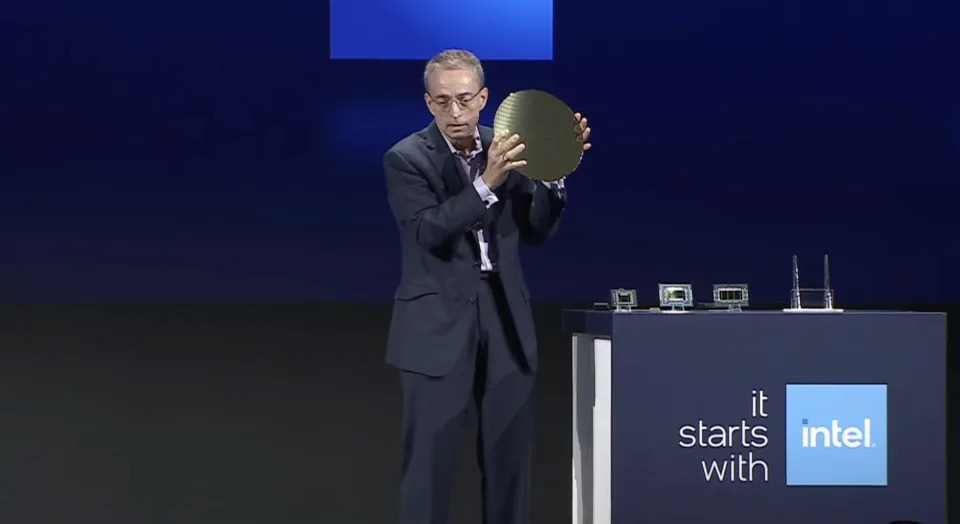
It's possible Lunar Lake can match or beat the X Elite for battery life, but it is pretty improbable. At the same time, it's a little odd to note that Lunar Lake's two active tiles are both made by TSMC. So, at the same time that Intel is making a pitch as a foundry for the possible coming generation of Arm chips for PCs, it is farming out production of the chip that's meant to take those Arm chips onto an external foundry.
The generous way of looking at all this is that Intel is still very much in transition. Gelsinger returned to Intel as CEO in 2021. But it was always going to take a long time to turn the company around, such was the extent to which it had lost its way and so far had it fallen behind TSMC in terms of chip production tech.
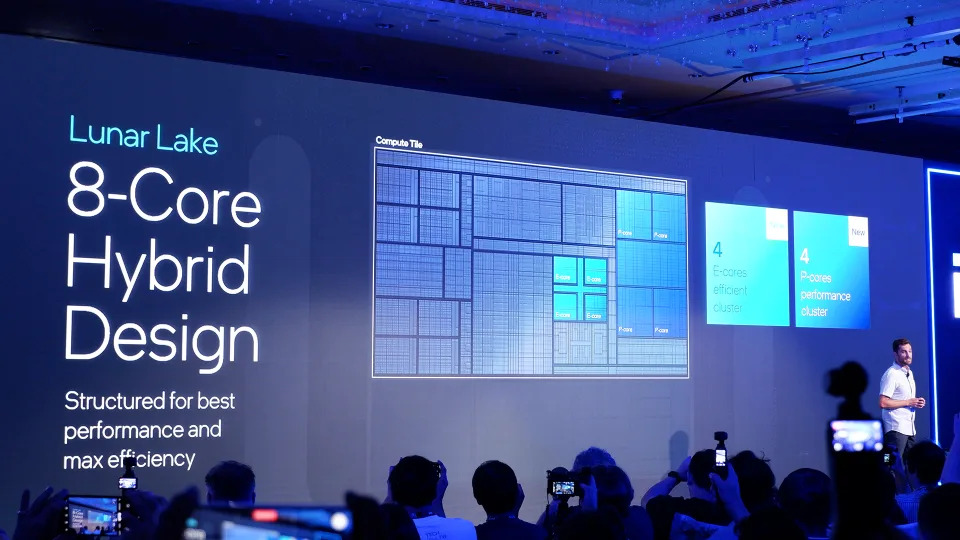
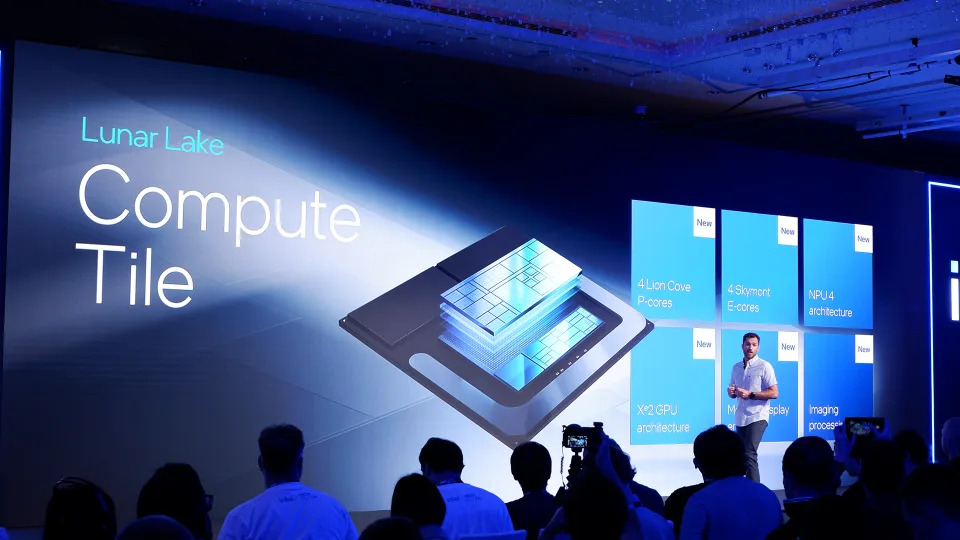
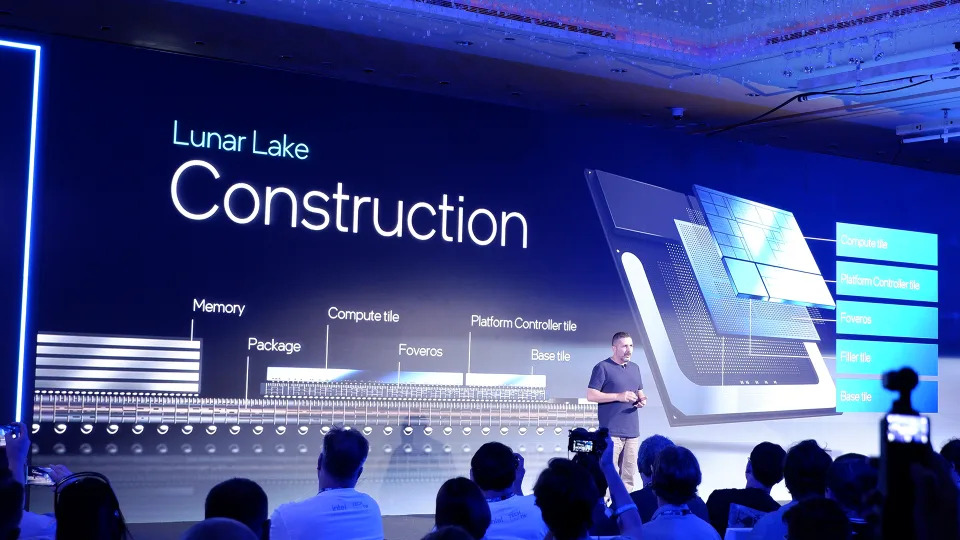
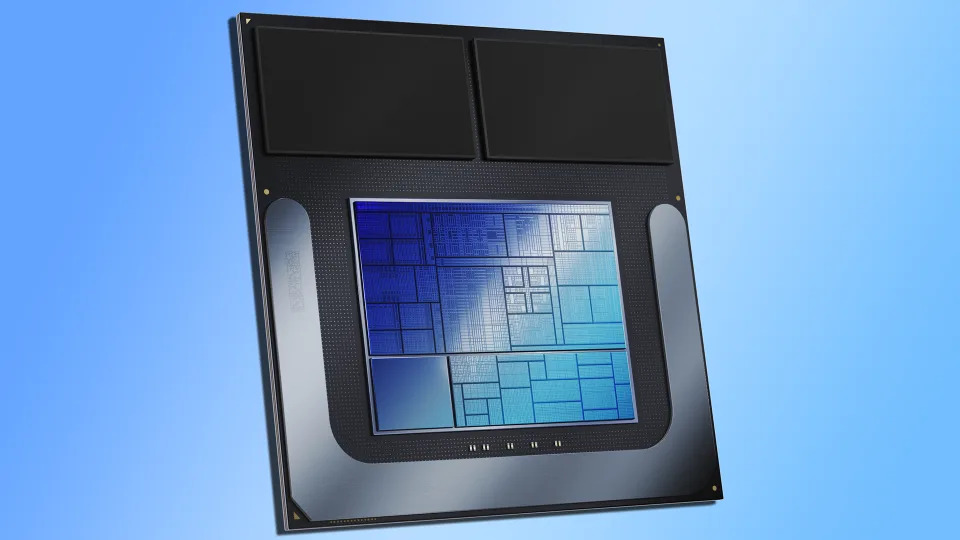
Realistically, the earliest that we were ever likely to see the true impact of Gelsinger's efforts was in the five or more year range from the beginning of his new tenure. And by Gelsinger's own admission on the keynote stage this morning, it is indeed the Panther Lake CPU that he's most excited about.
Gelsinger showed off a Panther Lake wafer using Intel's next-next generation 18A process node, promising that the chip would be powered up in the coming weeks. Intel has Panther Lake pencilled into Intel's roadmaps for 2025. But most likely, it won't be widely available in laptops until early 2026, some five years after Gelsinger took over.
Earlier this year, Intel announced a partnership with Arm to ensure that Arm's future in-house CPU core designs will be compatible with Intel's 18A process, paving the way for Arm customers to choose Intel for manufacturing. For now, there's really only one major Arm chip for the PC and that's the Qualcomm Snapdragon X Elite made by TSMC.
Will we one day see a PC that has "Intel inside" but Arm rather than Intel x86 IP? The way things are going, you wouldn't bet against it.
AfriPrime App link: FREE to download...



